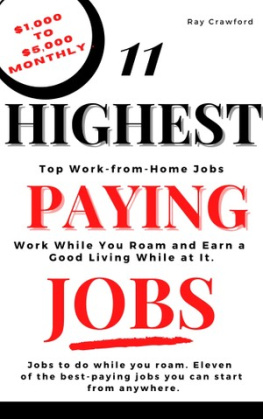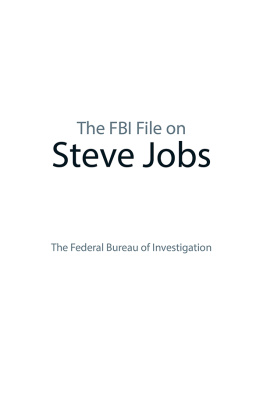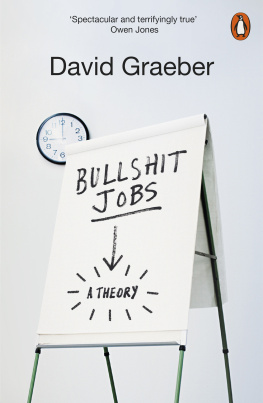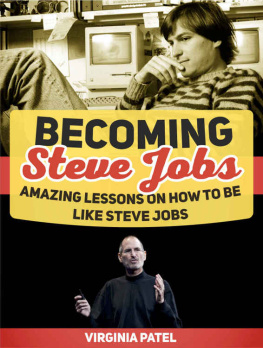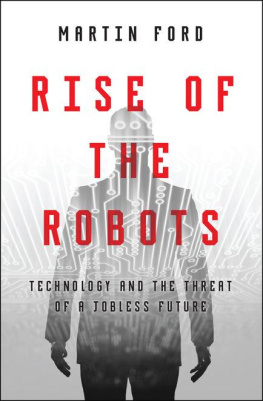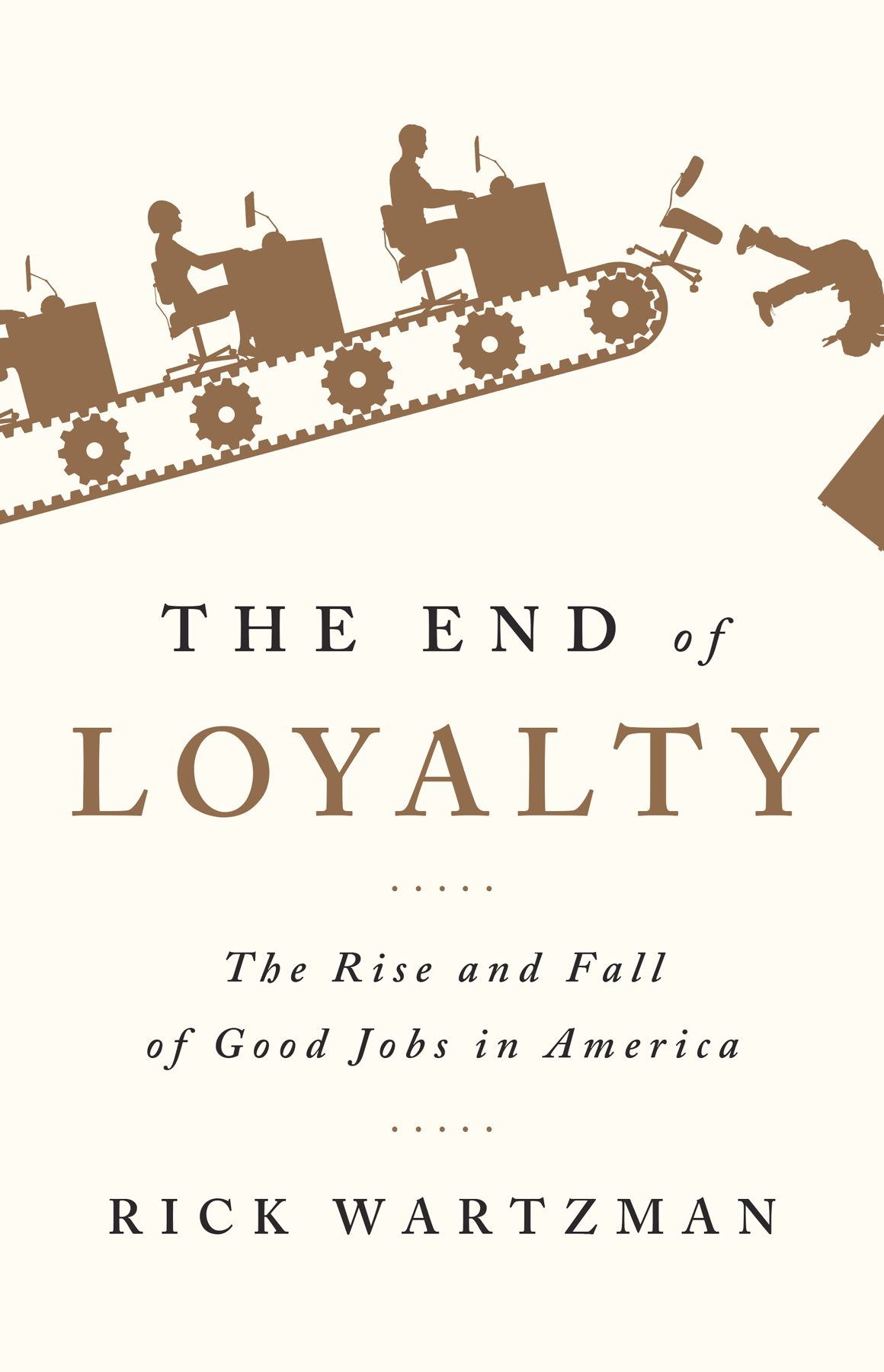Copyright 2017 by Rick Wartzman.
Published by PublicAffairs, an imprint of Perseus Books, LLC, a subsidiary of Hachette Book Group, Inc.
All rights reserved.
No part of this book may be reproduced in any manner whatsoever without written permission except in the case of brief quotations embodied in critical articles and reviews. For information, address PublicAffairs, 1290 Avenue of the Americas, New York, NY 10104.
PublicAffairs books are available at special discounts for bulk purchases in the U.S. by corporations, institutions, and other organizations. For more information, please contact the Special Markets Department at Perseus Books, 2300 Chestnut Street, Suite 200, Philadelphia, PA 19103, call (800) 810-4145, ext. 5000, or e-mail special.markets@perseusbooks.com.
Names: Wartzman, Rick, author.
Title: The end of loyalty : the rise and fall of good jobs in America / Rick Wartzman.
Description: First edition. | New York : PublicAffairs, [2017] | Includes bibliographical references and index. | Description based on print version record and CIP data provided by publisher; resource not viewed.
Identifiers: LCCN 2017006668 (print) | LCCN 2017011940 (ebook) | ISBN 9781586489151 (ebook) | ISBN 9781586489144 (hardcover)
Subjects: LCSH: LaborUnited StatesHistory. | Industrial relationsUnited StatesHistory. | CorporationsUnited StatesHistory. | Industrial policyUnited StatesHistory. | Labor policyUnited StatesHistory. | United StatesEconomic conditions1945
Classification: LCC HD8072.5 (ebook) | LCC HD8072.5 .W37 2017 (print) | DDC 331.700973dc23
A s I waited for an Uber to pick me up at Google, my mind was racing.
It was late February 2015, and a light breeze blew through the Mountain View, California, night sky. Id spent the past couple of hours at a meeting of a group called i4j, which stands for Innovation for Jobs. The buffet had been resoundingly mediocrea surprise considering that we were at the Googleplex, the technology giants corporate headquarters, famous for its great perks. The cognitive power in the room was sure dazzling, though.
There was Vint Cerf, a Google vice president and one of the fathers of the Internet; Byron Auguste, a former Obama administration economic-policy official who was now running an organization called Opportunity@Work, which was aiming to the US labor market; Robin Chase, the cofounder of Zipcar; Marjory Blumenthal, executive director of the Presidents Council of Advisors on Science and Technology; and a couple dozen other entrepreneurs of both the business and social variety.
This being Silicon Valley, wed been kicking around how to disrupt unemployment, which officially stood at 5.5 percent in the United States at that moment, a substantial drop from the double-digit jobless rate that had wracked the nation four and a half years earlier, following the Great Recession. Yet for many folks across the country, the recovery was less than full-bodied. , as many as 30 million Americans are either out of work or severely underemployed, Jim Clifton, the president of Gallup, the research and consulting firm, noted just a few weeks before my visit to Mountain View. Trust me, the vast majority of them arent throwing parties to toast falling unemployment.
The great American dream, he added, is to have a good job, and in recent years, America has failed to deliver that dream more than it has at any time in recent memory.
High-tech tends to be full of optimists, and i4j didnt disappoint in this regard. Many on hand could see a day coming soon when algorithms of dollars to be made in raising the value of people, which are, perhaps, our worlds most underutilized resource, asserted David Nordfors, the cochair of i4j.
I, too, am an optimist at heart, and I truly hoped that Nordfors was correct. But as someone whod spent more than five years examining how the social contract between employer and employee in America had changed since the end of World War II, I was skeptical of any remedies that seemed too quick or easy.
As my Uber driver, Jorge, pulled onto Plymouth Street to take me to San Francisco, it was hard not to think about what kind of job he had. On one level, ones employer.
Labor economist Guy Standing has a term for those with such jobs: a nod to the star character of the hit sitcom All in the Family.
Since then, not much has improved for most workers; a lot has gotten tougher. Compensation for some 80 percent of the American raise over forty years, after adjusting for inflation. During the prior twenty-five years, by contrast, pay and benefits for this huge demographic climbed by 90 percent.
Today, nearly half the nations workforce for worka trend particularly prevalent among those without a college degree. In the mid-1950s, only 2 percent of this group of men was on the sidelines.
Meanwhile, few Americans have sufficient savings health-care costs onto their employees.
Some the latest jump, earnings for male workers were less than they were in the 1970s. Median pay for women has essentially been flat since 2000.
Why is this happening? Its certainly not because American companies have been struggling overall and therefore havent had the means to do better for those in their employ. the job market to give them the lift it once did.
Some say that our current income inequality is no longer like the Roaring Twenties or even the Gilded Age, labor lawyer Thomas Geoghegan has written. Were reaching inequality that we havent known . Charlemagne, not J. P. Morgan, is the relevant comparison.
to bring America back, said Youngstown, Ohio, resident Kerri Smith, a caregiver for disabled children and a former Democrat who voted for Trump. Bring back the jobs, bring our country back.
But while the electorates anger was understandable, it was tough to see how shaking up Washington would have the intended effect. There is in American elections that choosing the right president will magically fix the nations wide economic problems, observed journalist Hedrick Smith, the author of, among other books, Who Stole the American Dream? But what plagues the middle class is much less the product of presidential policies and much more the result of the private-sector trickle-down business model. In the economy, the power to divvy up the nations pie lies in the hands of corporate CEOs.
T his realitythat most Americans fortunes depend directly on whether they have work and how their company treats them, not on the maneuverings of governmentis what compelled me to explore the shifting relationship between employer and employee. It is a narrative that Ive been watching play out for a long time from a variety of angles.
For fifteen years I was a reporter at the Wall Street Journal, where I tracked the coal, steel, and aerospace industries, getting to know frontline laborers along with those in the C-suite. I covered economic policy from the Treasury, Federal Reserve, and White Houseand was also there when a minimum-wage worker in Louisiana came with companies looking out for their own people.
I bring to these issues a strong belief that by better understanding where weve been, we can be smarter about where were going. To that end, since 2009 I have been delving into the histories of four companies: General Electric, General Motors, Kodak, and Coca-Cola. By tracing their ups and downs over a seventy-year spanthrough the Golden Age of the fifties and sixties, the tumultuous years of the seventies and eighties, and the past two and a half decades, when the corporate compact has been completely undoneI tell the bigger story of how America has transformed.


